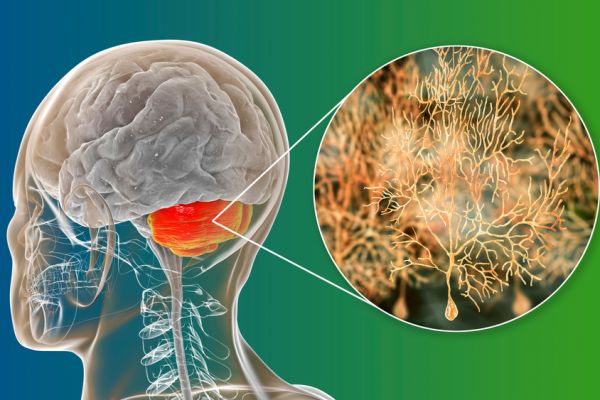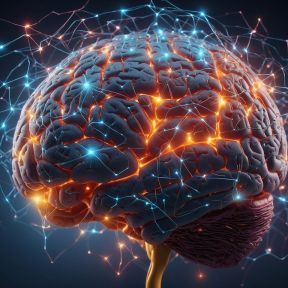Promoting Brain Health
Life places non-stop demands on the brain, and with age, changes in the brain’s structure and function threaten various degrees of cognitive impairment. To minimize the risk, scientists point individuals to a range of lifestyle factors associated with long-term brain health and mental function.
Many of the proactive steps for supporting brain health are behaviors that experts have long advised for other reasons: regular work-outs, a balanced diet, mental and social stimulation, proper rest, recovery, and treatment for medical problems. That these generally health- and happiness-promoting measures hold promise for slowing neural degradation provides all the more reason to integrate them into everyday life.
On This Page
Regular physical activity is a major protective factor in long-term brain health and cognitive function. Research has found that young adults with higher levels of physical activity and stronger cardiovascular health showed better cognitive functioning in midlife. Levels of physical activity in midlife are related to brain health decades later, too. There is also evidence that regular exercise reduces the risk of dementia.
There are a number of reasons why exercise is good for your brain: It increases blood flow and oxygen in the brain, boosts neurogenesis in parts of the brain like the hippocampus (key to memory formation), and helps to support neural function in other ways. One mechanism through which exercise appears to positively affect the brain is by increasing levels of brain-derived neurotrophic factor (BDNF), a protein that supports the survival of neurons and plays a role in synaptic plasticity.
The American Heart Association recommends at least 150 minutes of moderate aerobic activity or 75 minutes of vigorous aerobic activity, or a mix of both, spread out over each week.
General guidance for eating brain-friendly foods covers foods to consume regularly as well as foods to limit or avoid.
Foods to eat include:
- fruits and vegetables
- beans or legumes
- seafood
- unsalted nuts
- olive oil
- whole grains
Foods that experts recommend limiting include:
- meat (especially red and processed meat)
- high-fat dairy
- refined grains (including white bread)
- sweets
- fried food
Experts have touted the benefits for long-term brain health of specific diets that encompass many of these to-eats and not-to-eats, such as the Mediterranean diet and a related option, the MIND diet, that combines components of different brain health-promoting diets. There is also evidence to suggest that intermittent fasting—ceasing carbohydrate intake for at least 12 hours overnight—may help preserve the brain by helping to stem harmful changes in the brain’s metabolism over time.
Staying mentally active is associated with indicators of cognitive function and lower risk of dementia. It is difficult to determine the extent to which particular mental activities reduce cognitive decline or just coincide with lower risk, and there is reason to be wary of bold claims about “brain games.” Yet a variety of low-cost activities may be protective, especially when a person regularly engages in more than one of them—reading, learning new skills, taking classes, and creating art are all examples of activities proposed by experts. Research also suggests that the cognitive complexity of one’s job is positively related to measures of white matter integrity in the brain and cognitive function decades later.
The benefits of social interaction, in addition to boosting general well-being, may include better-preserved cognitive function over the long term. Research has found an association between the size of an individual’s social network and the likelihood of cognitive decline, with larger networks corresponding to lower risk. Socializing can also be combined with other brain-boosting behaviors such as mental self-challenge and exercise.
A number of health conditions, including hypertension, high cholesterol, and obesity are associated with greater risk of cognitive impairment, suggesting that treatment of these medical conditions may be protective for brain health. Clinical depression is a risk factor as well—an additional reason to seek treatment for depression.
Taking precautions to physically protect your head to prevent traumatic brain injuries may also reduce risk to long-term brain health and cognitive function.
Limiting drinking and smoking is another pathway to promoting brain health. Smoking and heavy drinking are among the risk factors for dementia. Research suggests that not smoking and limiting alcohol consumption to moderate levels may, along with other healthy behaviors, help offset a person’s genetic risk for dementia.
Regularly getting a good night’s sleep, in addition to having benefits for near-term cognitive function and well-being, may be protective for brain health in the longer term. Research has linked sleep deprivation to immediate increases in the presence of molecules whose buildup in the brain over time is a hallmark of Alzheimer’s disease.














